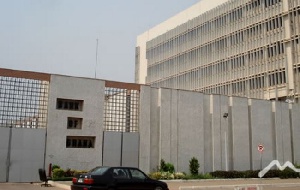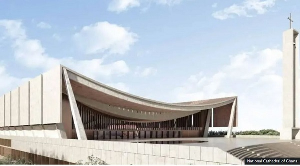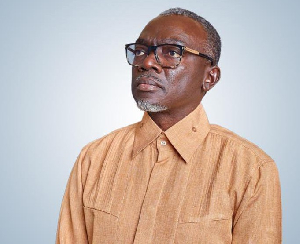Enquiries made by the B&FT have established that the Ghana Interbank Payment and Settlement Systems (GhIPSS), can handle the intermediary role in across-network mobile money transactions, a multi-million-dollar job the central bank has outsourced to a private company.
An insider source told the B&FT that what GhIPSS, a wholly owned subsidiary of the central bank, is doing by linking all banks via switch is similar to the interoperability system the central bank wants to introduce in the mobile money sector.
GhIPSS was incorporated in May 2007 “with a mandate to implement and manage interoperable payment system infrastructure for banks and non-bank financial institutions in Ghana.”
Part of its role, for example, involves electronic clearing of cheques and the processing and settlement of bulk debit and credit transfers between banks.
The source said the current payment systems infrastructure deployed by GhIPSS to interconnect the banks could also be used to assist mobile money transactions across networks.
“The same infrastructure we use to interconnect the banks can be utilised to connect the telcos to provide the interoperability service. Indeed, GhIPPS is not far from implementing such a switch,” the source added.
Although an official of the company in question, Sibton Switch, confirmed to the B&FT that they are “working” on a project with the central bank, the person declined to give any further information about the deal.
The telecom companies have, on their part, given indication they do not need an intermediary for across-network transactions, given its extra cost implications.
Checks by the B&FT show, also, that the banks, which are now instrumental in the mobile money business, are reluctant to connect to the newly developed switch, especially when they are already connected to GhIPSS.
The central bank has been stonewalling following attempts by the B&FT to find out why it decided to outsource the mobile money interoperability job when its own subsidiary is said to have the capacity to handle same.
The Head of the Payment Systems Department at BoG, Dr Settor Amediku, declined a request by the B&FT to speak on the issue whereas the Communications Department pleaded it be given time to respond.
Telcos’ objection
Last week, the B&FT sighted a letter written by the Ghana Chamber of Telecommunications to the central bank, which complained that, “the current pricing model being proposed, especially with respect to the revenue share, is not in alignment with international standards or benchmarks.
Apart from raising issues about the cost of the project, the Chamber said the central bank’s project did not have clearly defined scope regarding exactly what the switch would do.
The letter, dated January 9, 2017, which follows a meeting between the central bank, mobile money operators and the banks, said: “It was evident from the meeting that the project scope was still not clear even though stakeholders are being pushed towards implementation.
Our understanding from the start was that the project was to facilitate interoperability of payment systems in Ghana, including Banks and GhIPSS, but the current engagements have been restricted to electronic money issuers (EMIS) [mobile money operators] only, without clear understanding of when and how the others, especially the banks, will participate.
We are reliably informed that the banks, for instance, have still not committed to the project, raising a lot of doubts about their participation,” the letter, signed by CEO of the chamber, Kwaku Sakyi-Addo, said, demanding an urgent meeting with the central bank.
According to data from the central bank, from January to September last year, there were more than 368 million individual mobile money transactions, which amounted to over GH¢51.4 billion in value – a more than 115 percent year-on-year increase.
Business News of Friday, 3 February 2017
Source: B&FT Online

















